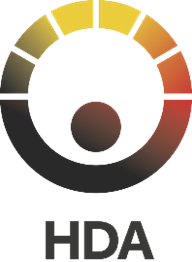A brief overview of some terms relating to data and health
Browse the glossary using this index
Special | A | B | C | D | E | F | G | H | I | J | K | L | M | N | O | P | Q | R | S | T | U | V | W | X | Y | Z | ALL
D |
|---|
Data aggregationData aggregation is when you take a lot of small pieces of information and combine them into a bigger summary. It’s like collecting puzzle pieces and putting them together to see the bigger picture.
For example: If you collect data about daily temperatures from different cities, you can aggregate it to find the average temperature for the whole country.
Instead of looking at every single detail, you can focus on the overall trends or patterns. it alse saves time: It’s easier to analyze summarized data than thousands of individual points.
In short, data aggregation turns lots of small pieces of data into something more useful and easy to understand. | |
Data altruismData altruism is defined as ‘individual people and companies can voluntarily make data available for the common good'. It is focusing on the safe reuse of public-sector data and establishing a level playing field in the data economy by promoting data sharing and reducing barriers to data accessibility. | |
Data collectionData collection is the process of gathering information so you can use it to learn something, make decisions, or solve problems. The goal of data collection is to gather accurate and relevant information that can be used for analysis, decision-making, or improvement.
It can be done in many ways: surveys or interviews; observing and recording behaviors; sensors, like weather monitors or traffic cameras.
In short, data collection is just about gathering the facts you need to answer a question or achieve a goal. | |
Data controllerA data controller is a person, organization, or entity that determines the purpose and means of processing personal data. The data controller has the responsibility for ensuring that personal data is handled in compliance with data protection laws. It is the person who decides why and how personal data will be processed. | |
Data cultureData culture is about how people in an organization or community value and use data in their everyday work and decision-making. Building a data culture isn’t just about having the right tools or technology—it’s about encouraging people to trust and use data as a natural part of how they work. In healthcare, it might mean using patient data to improve treatments and outcomes. | |
Data ethicsData ethics focuses on the moral obligations that all societal actors have (or should have) when collecting, generating, analysing and disseminating both structured and unstructured data, human-provided data as well as the leverage of existing databases, including decisions driven by automated/artificial intelligence (AI) in relation to data in general and personal data in particular. It relates to general principles on which our societies are built and is highly relevant to building trust and ensuring fairness. It is not only about protecting data privacy or security. It is also about protecting citizens, customers and users from data practices by both the public and the private sector that adversely impact people and society. | |
Data extractData extraction in research involves collecting and retrieving relevant data from various sources for the purpose of analysis, interpretation and deriving conclusions. In healthcare, data extraction plays an increasingly important role in patient care and predictive medicine as well as in medical research. | |
Data governanceData governance refers to the overall management of the availability, usability, integrity and security of the data that is collected, used and reused. It involves the establishment of policies, procedures and standards to ensure that data are managed effectively throughout their lifecycle within organizations as well as within and between countries. | |
Data holderA data holder is an entity (like a person, organization, or system) that stores or manages data. A data holder keeps data safe and organized. It decides how to manage, share, or protect that data based on rules or laws. Examples include banks (holding financial data), schools (holding student records), or even your smartphone (holding your photos and contacts). | |
